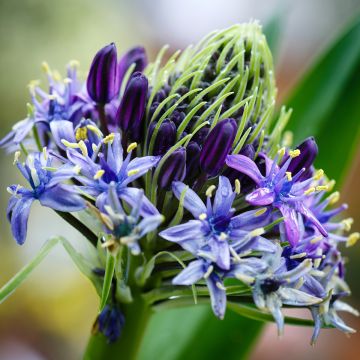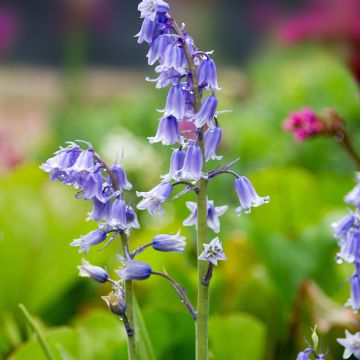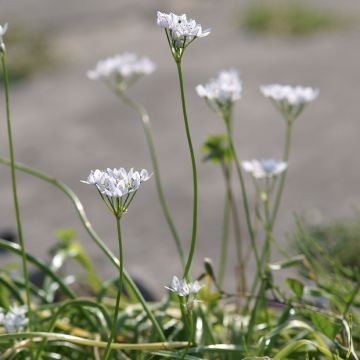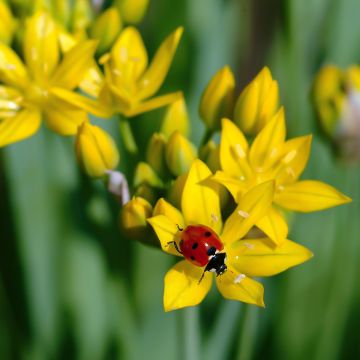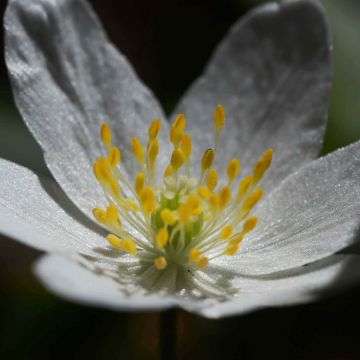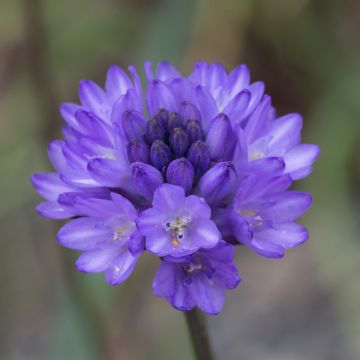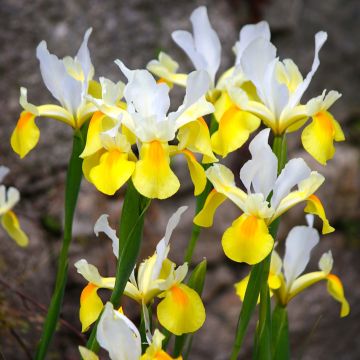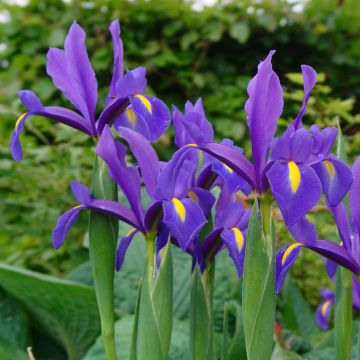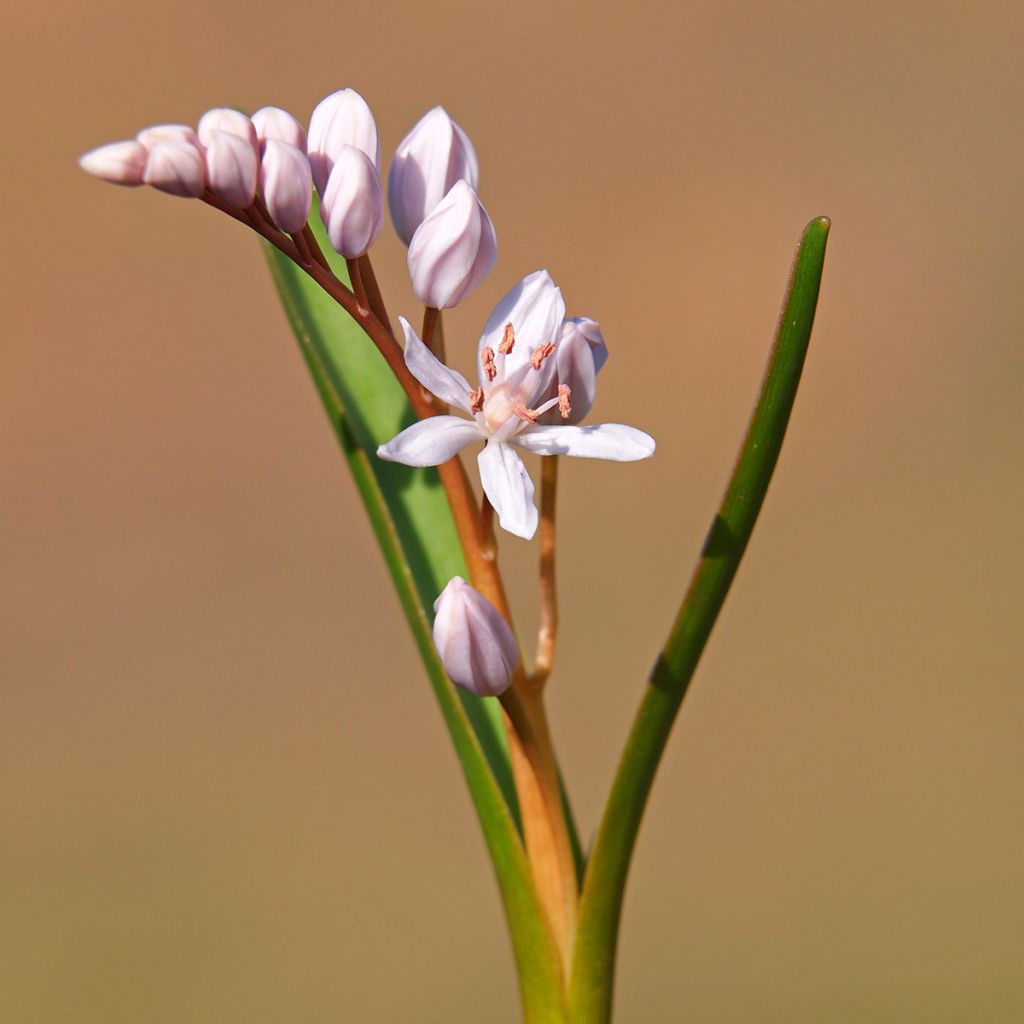

Scilla bifolia Rosea
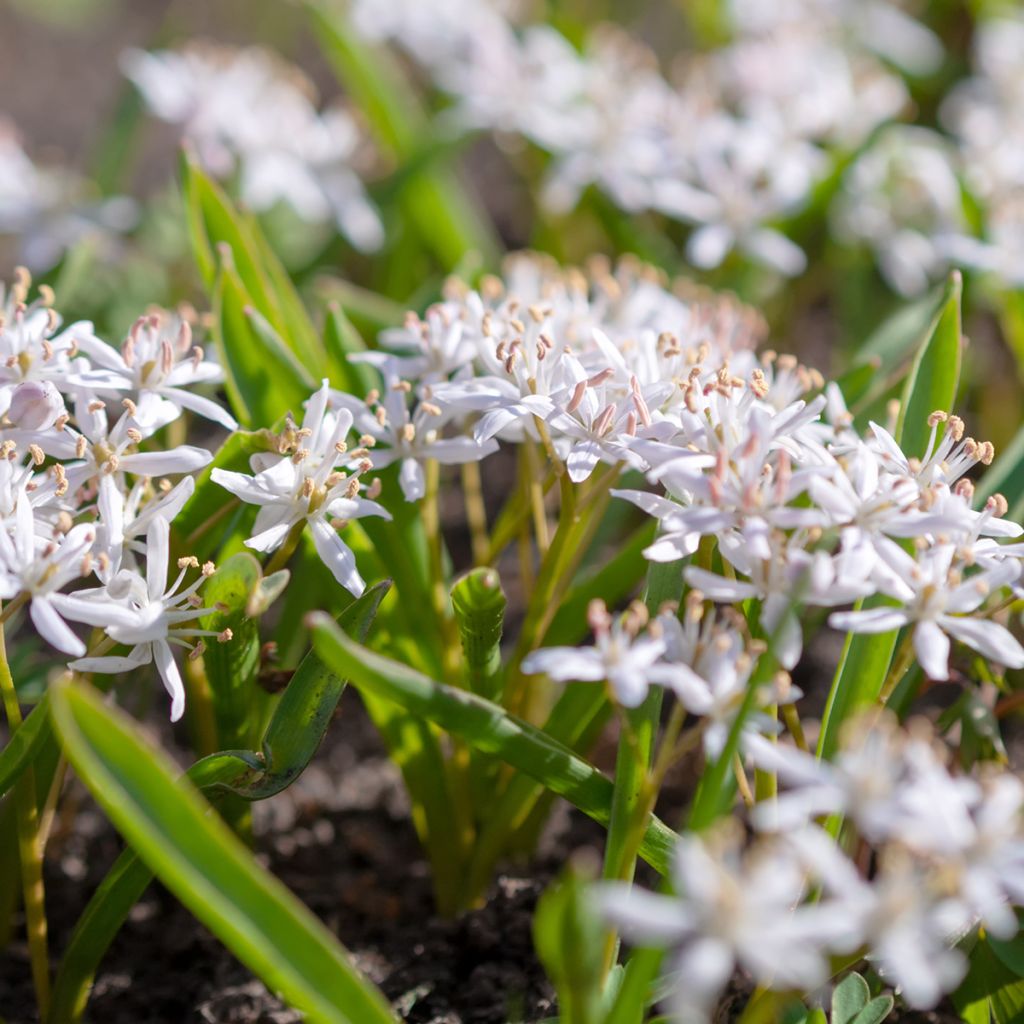

Scilla bifolia Rosea
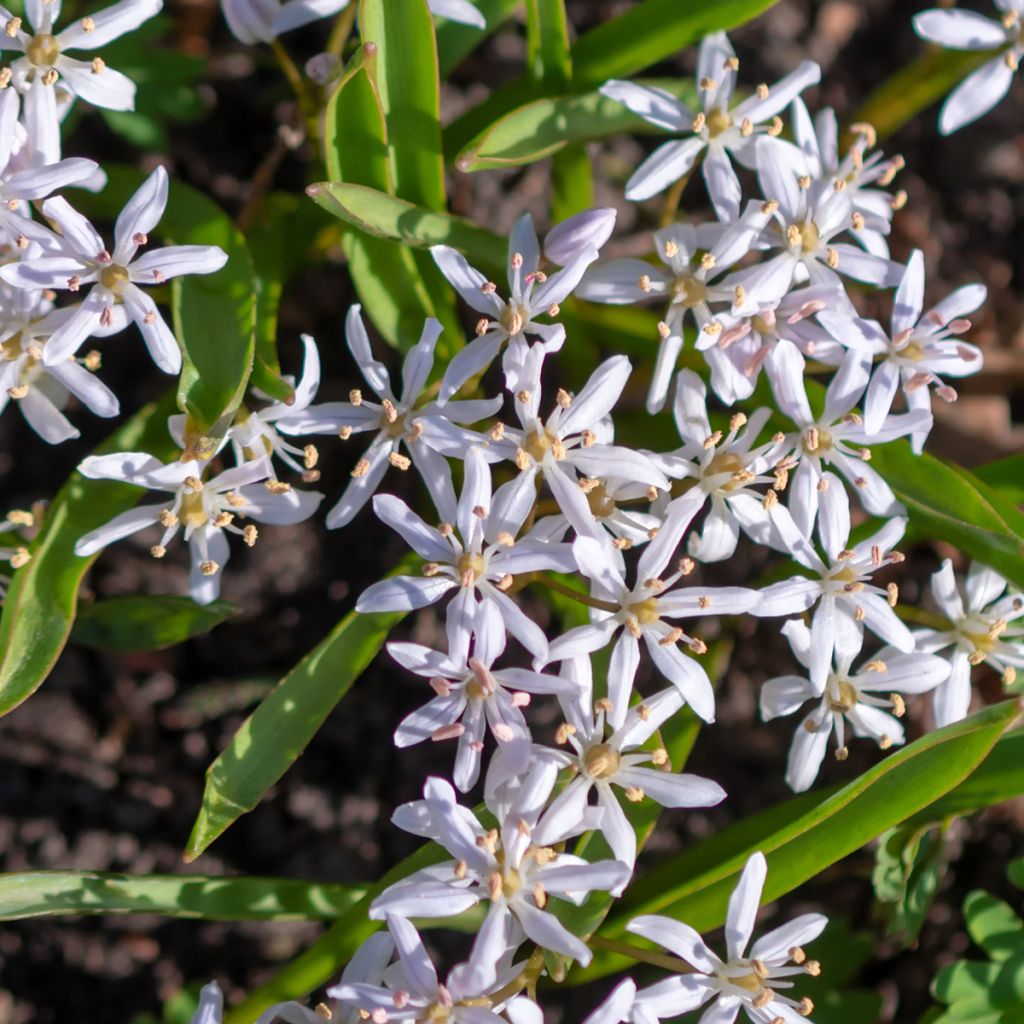

Scilla bifolia Rosea
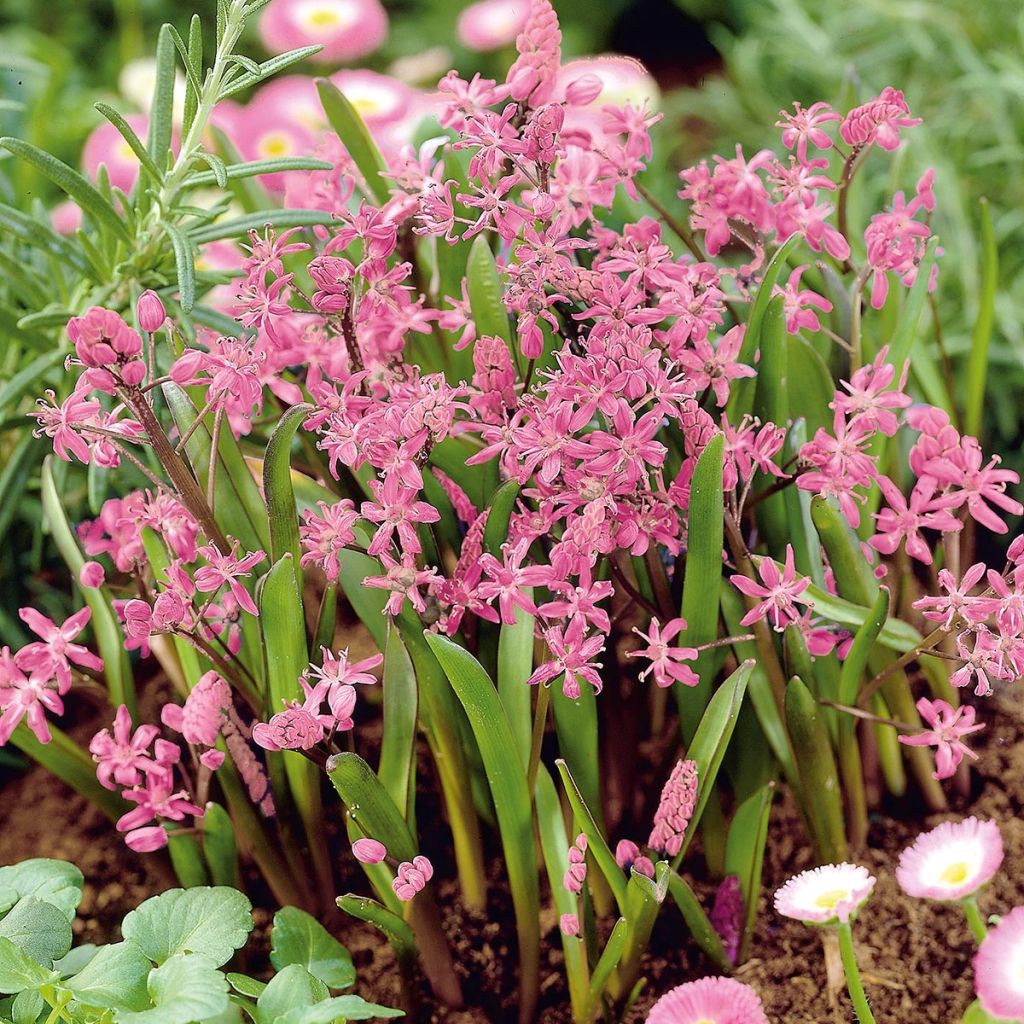

Scilla bifolia Rosea
Scilla bifolia Rosea
Scilla bifolia Rosea
Alpine squill 'Rosea'
Good, healthy bulbs, looking forward to next spring!
Veronique, 16/11/2020
Special offer!
Receive a €20 voucher for any order over €90 (excluding delivery costs, credit notes, and plastic-free options)!
1- Add your favorite plants to your cart.
2- Once you have reached €90, confirm your order (you can even choose the delivery date!).
3- As soon as your order is shipped, you will receive an email containing your voucher code, valid for 3 months (90 days).
Your voucher is unique and can only be used once, for any order with a minimum value of €20, excluding delivery costs.
Can be combined with other current offers, non-divisible and non-refundable.
Why not try an alternative variety in stock?
View all →This plant carries a 6 months recovery warranty
More information
We guarantee the quality of our plants for a full growing cycle, and will replace at our expense any plant that fails to recover under normal climatic and planting conditions.
Would this plant suit my garden?
Set up your Plantfit profile →
Description
Scilla bifolia 'Rosea' is a pink-flowered form of a small bulbous plant that thrives in deciduous woodlands. In early spring, it bears clusters of pale-pink star-shaped flowers. It eventually forms charming little colonies that will bloom alongside botanical narcissus, hepaticas, and Greek anemones, under deciduous trees and bushes. This hardy and easy-to-grow squill is, however, very rarely planted in gardens.
Scilla bifolia belongs to the Asparagaceae family. It is a small bulbous perennial plant. Its natural habitat consists of light forests, in cool and moist places, on hills or mountains, up to 1500m (4921ft) altitude.
Its vegetation emerges from the ground in March. Its small ovoid and whitish bulb produces two or three upright, ribbed, bright green leaves, sheathing a slender stem measuring 20cm (8in) in height. Flowering takes place in March-April, with each bulb producing one to six floral stems. In the upper part of the stem, the inflorescence forms a dense, wide pyramidal cluster, adorned with 3 to 10 salmon-pink and mauve floral buds. They open into star-shaped corollas with 6 petals, measuring 2 to 3cm (1in) in diameter, barely tinged with pink. Pink anthers dominate in the centre. Pollination is ensured by bumblebees and bees. The fruit is a triangular capsule. The foliage dries up a few weeks after flowering, in early summer, while the bulb goes into dormancy. The plant multiplies by seeds, as well as by producing small bulbils.
Plant the bulbs in beds under deciduous trees, in borders, or in partially shaded rockeries. Once established, it spreads spontaneously without requiring maintenance and never becomes invasive. You can plant the bulbs with crocuses, daffodils, hyacinths, and Anemone blanda. They also work well with charming woodland perennials such as tiarellas, primroses, and hellebores.
Report an error about the product description
Scilla bifolia Rosea in pictures


Plant habit
Flowering
Foliage
Botanical data
Scilla
bifolia
Rosea
Hyacinthaceae
Alpine squill 'Rosea'
Western Europe
Other Scilla
View all →Planting and care
Scilla bifolia 'Rosea' is an easy-to-grow plant. In cool climates, plant the bulbs in the sun. In milder areas, plant in partial shade. Plant in medium, sandy, humus-rich and well-drained soil. It will also thrive under deciduous trees or bushes, which lose their leaves in winter. Plant the bulbs from September to November, 8 to 10cm (3 to 4in) deep. During the growing period, water once or twice a week and keep dry in summer. The plant may be susceptible to diseases.
Under cover, place the pots in full light in a mixture of half loamy soil, a quarter leaf compost, and a quarter gravel.
Planting period
Intended location
Care
-
, onOrder confirmed
Reply from on Promesse de fleurs
Similar products
Haven't found what you were looking for?
Hardiness is the lowest winter temperature a plant can endure without suffering serious damage or even dying. However, hardiness is affected by location (a sheltered area, such as a patio), protection (winter cover) and soil type (hardiness is improved by well-drained soil).

Photo Sharing Terms & Conditions
In order to encourage gardeners to interact and share their experiences, Promesse de fleurs offers various media enabling content to be uploaded onto its Site - in particular via the ‘Photo sharing’ module.
The User agrees to refrain from:
- Posting any content that is illegal, prejudicial, insulting, racist, inciteful to hatred, revisionist, contrary to public decency, that infringes on privacy or on the privacy rights of third parties, in particular the publicity rights of persons and goods, intellectual property rights, or the right to privacy.
- Submitting content on behalf of a third party;
- Impersonate the identity of a third party and/or publish any personal information about a third party;
In general, the User undertakes to refrain from any unethical behaviour.
All Content (in particular text, comments, files, images, photos, videos, creative works, etc.), which may be subject to property or intellectual property rights, image or other private rights, shall remain the property of the User, subject to the limited rights granted by the terms of the licence granted by Promesse de fleurs as stated below. Users are at liberty to publish or not to publish such Content on the Site, notably via the ‘Photo Sharing’ facility, and accept that this Content shall be made public and freely accessible, notably on the Internet.
Users further acknowledge, undertake to have ,and guarantee that they hold all necessary rights and permissions to publish such material on the Site, in particular with regard to the legislation in force pertaining to any privacy, property, intellectual property, image, or contractual rights, or rights of any other nature. By publishing such Content on the Site, Users acknowledge accepting full liability as publishers of the Content within the meaning of the law, and grant Promesse de fleurs, free of charge, an inclusive, worldwide licence for the said Content for the entire duration of its publication, including all reproduction, representation, up/downloading, displaying, performing, transmission, and storage rights.
Users also grant permission for their name to be linked to the Content and accept that this link may not always be made available.
By engaging in posting material, Users consent to their Content becoming automatically accessible on the Internet, in particular on other sites and/or blogs and/or web pages of the Promesse de fleurs site, including in particular social pages and the Promesse de fleurs catalogue.
Users may secure the removal of entrusted content free of charge by issuing a simple request via our contact form.
The flowering period indicated on our website applies to countries and regions located in USDA zone 8 (France, the United Kingdom, Ireland, the Netherlands, etc.)
It will vary according to where you live:
- In zones 9 to 10 (Italy, Spain, Greece, etc.), flowering will occur about 2 to 4 weeks earlier.
- In zones 6 to 7 (Germany, Poland, Slovenia, and lower mountainous regions), flowering will be delayed by 2 to 3 weeks.
- In zone 5 (Central Europe, Scandinavia), blooming will be delayed by 3 to 5 weeks.
In temperate climates, pruning of spring-flowering shrubs (forsythia, spireas, etc.) should be done just after flowering.
Pruning of summer-flowering shrubs (Indian Lilac, Perovskia, etc.) can be done in winter or spring.
In cold regions as well as with frost-sensitive plants, avoid pruning too early when severe frosts may still occur.
The planting period indicated on our website applies to countries and regions located in USDA zone 8 (France, United Kingdom, Ireland, Netherlands).
It will vary according to where you live:
- In Mediterranean zones (Marseille, Madrid, Milan, etc.), autumn and winter are the best planting periods.
- In continental zones (Strasbourg, Munich, Vienna, etc.), delay planting by 2 to 3 weeks in spring and bring it forward by 2 to 4 weeks in autumn.
- In mountainous regions (the Alps, Pyrenees, Carpathians, etc.), it is best to plant in late spring (May-June) or late summer (August-September).
The harvesting period indicated on our website applies to countries and regions in USDA zone 8 (France, England, Ireland, the Netherlands).
In colder areas (Scandinavia, Poland, Austria...) fruit and vegetable harvests are likely to be delayed by 3-4 weeks.
In warmer areas (Italy, Spain, Greece, etc.), harvesting will probably take place earlier, depending on weather conditions.
The sowing periods indicated on our website apply to countries and regions within USDA Zone 8 (France, UK, Ireland, Netherlands).
In colder areas (Scandinavia, Poland, Austria...), delay any outdoor sowing by 3-4 weeks, or sow under glass.
In warmer climes (Italy, Spain, Greece, etc.), bring outdoor sowing forward by a few weeks.






























